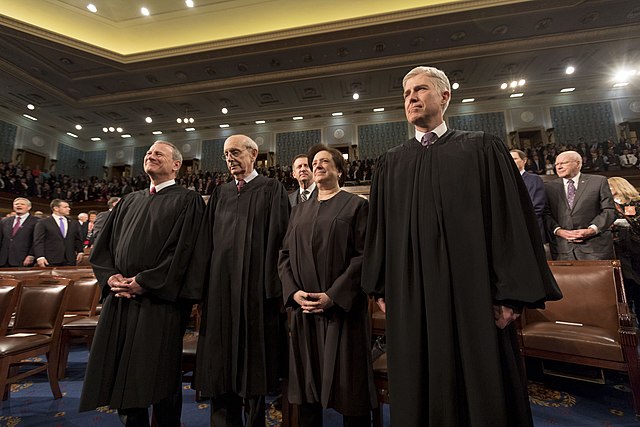Justice Stephen Breyer’s Retirement
In recent years, the Supreme Court has become one of the main conquests of our country’s extremely polarized political landscape, especially with the looming threat of Roe v. Wade being overturned. As justices are nominated for life, they are widely regarded as some of the most powerful figures in the country; the decisions they make span generations. Today, in breaking news, Justice Stephen Bryer, the Supreme Court’s oldest member and one of three remaining liberals on the court, will be stepping down.
Born in San Francisco, California in 1938, Stephen Breyer studied at Harvard, Stanford, and Oxford University before becoming a professor at his first alma mater. He worked as an Assistant Special Prosecutor of the Watergate Special Prosecution Force in 1973, and then joined the U.S. Senate Judiciary Committee in later years, serving as both Special Counsel and Chief Counsel. In 1980, Breyer was appointed to the U.S. Court of Appeals where he served for fourteen years, making a name for himself as a competent and capable attorney.
Finally, in 1993, Breyer was given the opportunity to serve on the Supreme Court. However, just days before his interview with then-president Bill Clinton, he was hit by a car in Harvard Square. He suffered several broken ribs and a punctured lung, but these injuries were no match for his persistence; he snuck out of the hospital before he was to be released to attend the meeting. This determination finally paid off on August 3, 1994, when Breyer took his long-anticipated oath to the Supreme Court.
While on the court, Breyer earned the reputation of a fair and pragmatic judge. Rejecting the originalism approach, Breyer considered the intent of the Founding Fathers and practical consequences when making his decisions. A staunch opponent of the death penalty, Breyer also turned heads when he was the lone dissenting opinion in Brown v. Entertainment Merchants Association (2011), a case regarding shielding minors from pornography. Overall, in Breyer’s twenty-seven years on the Court, he contributed invaluably to our modern understanding of the Constitution, and his legacy will stand long after his position on the Court is replaced.
Justice Breyer’s retirement holds more significance than a sentimental remembrance of his achievements; it is an opportunity to elect a new justice to the Court. Ever since the abrupt death of iconic Judge Ruth Bader Ginsburg in September 2020, there have been calls for the 83-year-old judge to retire lest he die and be replaced during a Republican administration. President Biden is expected to nominate a liberal to the court, which would leave the 6-3 Republican majority unchanged. However, with the current state of the Democratic party, it would be unsurprising if Manchin or Sinema decided to disrupt the bare majority and cleave Biden’s nomination.
Now, the only remaining question is who Breyer’s replacement will be. During his bitter 2020 campaign, Biden pledged that, given the opportunity, he would name the first Black woman to the Supreme Court. Considering that nominees usually come from the appellate court, many suspect that Biden’s pick will be Judge Ketani Brown Jackson, who was recently elevated to the U.S. Court of Appeals for the District of Columbia Circuit. However, considering the multitude of broken promises that the Biden administration has already accumulated, I would not bet on a female Black Justice. For now, all we can do is honor Justice Breyer’s legacy, and hope that his replacement will work to fix the political polarization that threatens the safety of our country.

Arielle is an IB Senior who is very excited for her fourth and final year with The Banner. Outside of The Banner, you can find her telling unfunny jokes...


